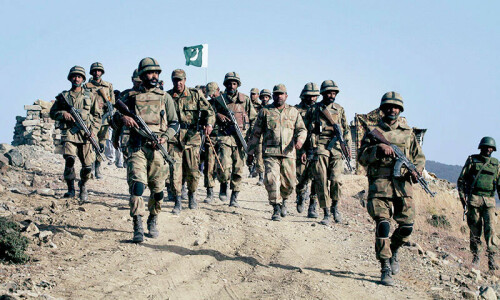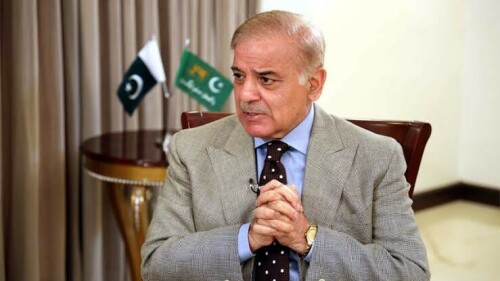
‘An entrepreneur tends to bite off a little more than he can chew hoping he’ll quickly learn how to chew it.’ — Roy Ash (co-founder and president of Litton Industries, US).
HIGHER education in Pakistan is in transition. Under the 18th Amendment, the government seems all set to devolve higher education to the provinces.
Devolution would effectively mean curtains for the Higher Education Commission (HEC), the highly centralised institution which was founded during Musharraf’s dictatorial regime.
The opponents of devolution, namely a section of the press and academia, are employing a variety of arguments in favour of their position. According to them, devolution would dramatically scale back the gains made in the higher education sector under the auspices of the HEC. As the provinces have little capacity and inadequate institutional structures, higher education would suffer a massive setback from which the country may never recover.
The (hidden) irony of this position is that it by and large emphasises the centrality of institutional issues such as standardisation, efficiency, accountability, numbers, quality assurance, etc. Crucially however, the relationship between institutions and broader logics of power and control — matters that have been of concern to sociologists, and particularly new institutionalists, for many years now — is conveniently glossed over.
In effect, the present debate on the fate of the HEC is loaded with truth claims and moral assertions yet is conspicuous for the lack of objective information on and discussion of larger problems of higher education. More specifically, there is little concern for the relationship between higher education and problems of social justice and inequality of opportunity. At a more general level, there is no effort to interrogate the manner in which higher education relates to culture, ideology and democracy.
A similar disregard is observable with respect to the debate on the university as a place of learning and practice. Since the Zia era, the university has ceased to be a democratic space. University students are deprived of their basic right to association in the form of the ban on students unions. Politics and dissent are considered dangerous and harmful for students. The general sentiment is that conscientious students should stay away from politics.
The present debate on higher education ignores all these vital issues. Instead, those who have spearheaded the anti-devolution campaign are rather simplistically portraying the HEC as some kind of panacea to all of Pakistan’s problems. If the HEC is preserved, they say, we will magically find ourselves on the road to development and progress. As an academic, I cannot be satisfied with such superficial rhetoric and seek more meaningful answers to the quandaries outlined above.
How should we explain the rise of and resistance to the demise of the HEC as an institution? The concept ‘institutional entrepreneurship’ offers us some important clues to understanding the constitution of the HEC and the emergent resistance to its perceived demise.
The term institutional entrepreneurship refers to the activities of organised and resourceful actors (entrepreneurs) with respect to the creation of new institutions or resistance to disruption of hitherto favourable institutional arrangements.
Institutional entrepreneurs grasp opportunities in any given institutional environment to realise their interests.
Viewed from this perspective, the creation of the HEC was the result of the coalition of those resourceful actors who anticipated the opening up of new entrepreneurial possibilities in the higher education sector. These actors included corporate groups, professionals and a section of academia, international aid agencies, military-bureaucracy involved in the education business and new middle classes eager to participate in the emergent global knowledge economy.
The boom in the higher education sector seen after the creation of the HEC is in conformity with global trends in academic capitalism. By academic capitalism I mean ostensibly academic practices that are actually oriented towards private profit. A number of research reports show that the creation of new institutions like HEC help entrepreneurs shift public subsidies to private interests and institutions.
It should not come as a surprise to learn, therefore, that the HEC facilitated the transfer of large public subsidies to private higher education institutions and interests. Moreover, the HEC’s own statistics indicate that much of the growth in higher education took place in Lahore, which is the political centre of ethnically hegemonic Punjab.
The spectre of devolution and subsequent demise of the HEC haunts our burgeoning education entrepreneurs who fear the loss of access to and control over large public subsidies and foreign funds. Furthermore, they are equally worried about diverse and potentially constrained institutional forms at the provincial level and the redistributive prospects of devolution.
Predictably, they cloak their entrepreneurial and institutional interests in the language of public interest activism. As a result, they strategically frame the whole affair and concoct a self-serving institutional logic that is consistent with their own specific power signatures.
The writer teaches at Quaid-i-Azam University, Islamabad.















































Dear visitor, the comments section is undergoing an overhaul and will return soon.